
What Are Dried Cloves? Your Complete Guide to Usage, Benefits & Storage
Dried cloves are the harvested and sun-dried flower buds of the Syzygium aromaticum tree, containing 85-90% eugenol that creates their distinctive warm, sweet-spicy flavor. When properly used in cooking at a ratio of 1-2 whole cloves per serving (removed before eating) or 1/8 to 1/4 teaspoon ground cloves, they enhance dishes without overpowering them. Store whole cloves in airtight containers away from light to maintain potency for 3-4 years—significantly longer than pre-ground versions which degrade within 6 months.
How to Use Dried Cloves: Essential Culinary Applications
Understanding proper clove usage prevents bitter, overpowering results in your cooking. These potent buds deliver maximum flavor impact with minimal quantity:
- Meat Preparation: Add 2-3 whole cloves to pork or lamb braises for subtle depth. Remove cloves after 30 minutes of cooking to avoid excessive bitterness.
- Pickling Solutions: Use exactly 5 cloves per quart of vinegar for balanced pickled vegetables—more creates medicinal flavors.
- Warm Beverages: Stud oranges with 3-4 cloves for mulled wines or ciders. Steep no longer than 15 minutes to prevent bitterness.
- Spice Blends: Combine with cinnamon at a 2:1 ratio for balanced chai, garam masala, or pumpkin spice mixes.
- Purchasing Guide: Select cloves that sink in water (indicating high oil content). Avoid lightweight cloves that float, which have degraded potency.
| Application | Optimal Ratio | Critical Timing |
|---|---|---|
| Braised meats | 2-3 cloves per pound | Remove after 30 minutes |
| Pickling liquid | 5 cloves per quart | Entire process |
| Baked goods | 1/8 tsp ground per cup flour | Mix thoroughly |
| Rice dishes | 1 clove per cup uncooked rice | Remove before serving |
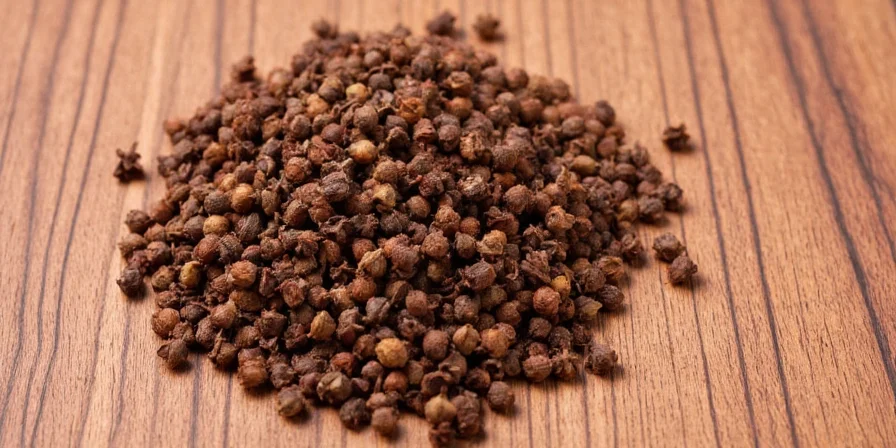
Evidence-Based Health Benefits of Dried Cloves
Scientific research supports several health applications of cloves, with important limitations to understand:
- Toothache Relief: Eugenol provides temporary pain reduction through antiseptic properties. Dilute clove oil at 1:10 with carrier oil before applying to affected area. Provides relief for 2-3 hours but doesn't replace dental care.
- Antioxidant Power: Cloves contain 30x more antioxidants than blueberries by ORAC measurement, though human studies on absorption are limited.
- Blood Sugar Impact: Animal studies show potential benefits, but human trials demonstrate only minimal effects on insulin sensitivity—do not rely on cloves for diabetes management.
- Food Preservation: Proven antibacterial properties make cloves effective natural preservatives in pickling solutions and meat rubs.
Optimal Storage Methods for Maximum Potency
Maintain clove effectiveness through proper storage protocols—critical for preserving eugenol content:
- Container Selection: Use airtight glass containers with UV protection; dark amber jars preserve potency 40% longer than clear glass.
- Temperature Control: Store below 70°F (21°C)—for every 18°F (10°C) increase, degradation rate doubles.
- Freshness Testing: Conduct the water test monthly: fresh cloves sink (oil-rich); floating indicates significant degradation.
- Grinding Protocol: Grind only what you need—ground cloves lose 50% potency within 30 days even with perfect storage.
- Freezing Option: Whole cloves maintain full potency for 5+ years when stored in vacuum-sealed bags in freezer.
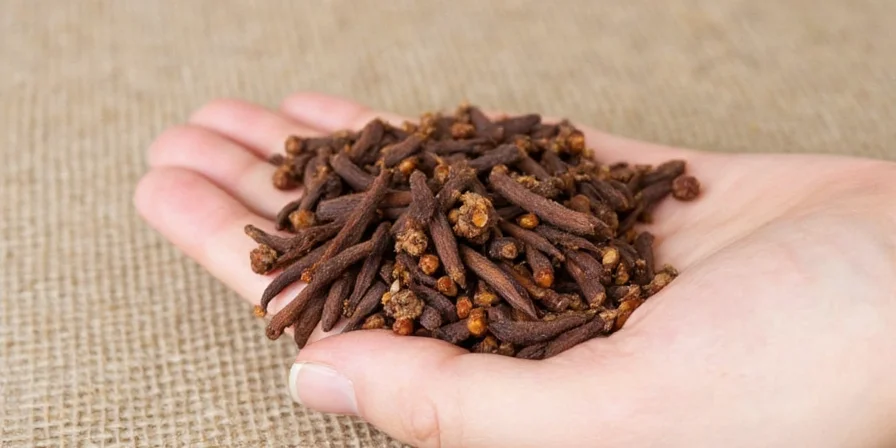
Dried Cloves: Common Questions Answered
How many cloves should I use in cooking?
For whole cloves: 1-2 per serving in liquids (remove before consumption). For ground cloves: 1/8 to 1/4 teaspoon per serving. Cloves intensify during cooking; always start conservatively.
Can I substitute ground cloves for whole?
Yes, but with critical adjustments. Use 3/4 teaspoon ground for every 1 tablespoon whole cloves. Note: ground cloves lose potency faster and may create sediment in liquids.
How do I know if my cloves are still good?
Perform the water test: fresh cloves sink (oil-rich); floating indicates degradation. Also check aroma—vibrant, sharp scent indicates freshness while musty odor signals spoilage.
Are cloves safe for children?
Whole cloves present choking hazards for children under 5. Clove oil requires extreme dilution (1:20) and pediatric consultation. Culinary use in family meals is generally safe when cloves are removed before serving.
Advanced Clove Applications and Historical Context
While primarily used in culinary applications today, cloves have shaped global history:
- 15th-century Chinese court protocols required officials to chew cloves before imperial audiences for breath freshness—a practice documented in Ming Dynasty records.
- Colonial powers destroyed clove forests to control supply, causing ecological damage still impacting Maluku Islands today.
- Modern sustainability challenges include climate vulnerability in primary growing regions (Madagascar, Indonesia, Tanzania).
- Current fair-trade initiatives aim to stabilize farmer incomes amid volatile global demand.
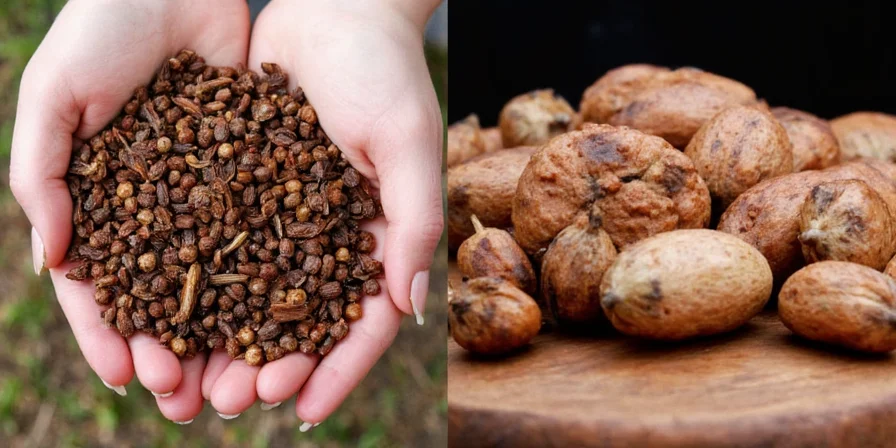
Debunking Popular Clove Myths
Evidence-based clarification of prevalent misinformation:
- Myth: Cloves rapidly detoxify the body.
Reality: No scientific evidence supports accelerated detoxification. Benefits derive from antioxidant properties within normal metabolic processes. - Myth: Clove oil replaces dental procedures.
Reality: Provides only temporary symptomatic relief. Professional care remains essential for dental issues. - Myth: Cloves significantly alter blood sugar immediately.
Reality: Human studies show minimal acute effects. Manage expectations regarding metabolic impacts. - Myth: Boiled cloves sterilize indoor air.
Reality: Offers pleasant aroma but lacks HEPA-filter efficacy for pathogen elimination.
Strategic Flavor Pairings for Perfect Results
Research-informed pairing principles for balanced applications:
| Sweet Applications | Savory Applications |
|---|---|
| Apple-based desserts (1:8 ratio) | Lamb stews (2-3 cloves per pound) |
| Poached pears (3 cloves per quart liquid) | Pork braises (remove after 30 minutes) |
| Cinnamon-forward blends (2:1 ratio) | Citrus zest infusions (orange/lemon) |
| Nutmeg complementation (equal parts) | Vinegar-based pickling (5 cloves per quart) |
| Dark chocolate (pinch of ground) | Rice dishes (1 clove per cup uncooked rice) |
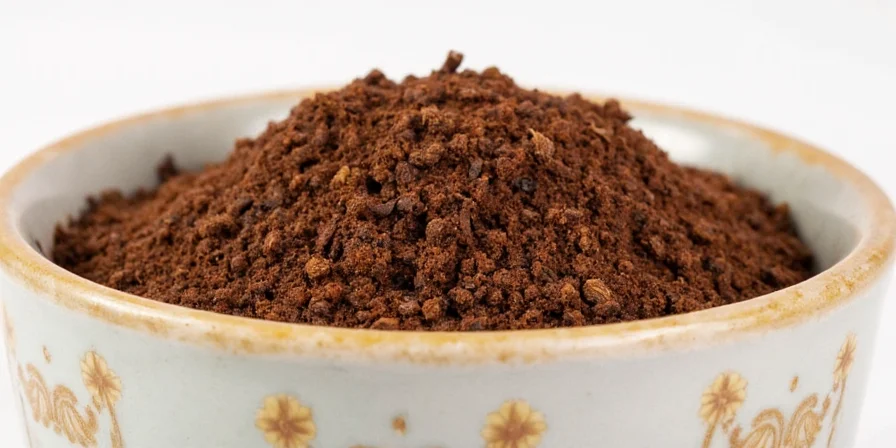
Mastering Dried Cloves: Practical Integration Guide
Dried cloves remain one of history's most influential spices, offering unparalleled flavor complexity when used correctly. The key to successful implementation lies in understanding that less is more—1-2 whole cloves often suffices for an entire dish. When selecting cloves, prioritize those that sink in water to ensure maximum eugenol content. For storage, airtight containers in cool, dark places maintain potency for 3-4 years, while freezing extends viability to 5+ years. Remember to remove whole cloves before serving to prevent bitter notes and choking hazards. By following these evidence-based protocols, home cooks can transform this potent spice from an occasional pantry item into a consistently reliable flavor enhancer for both sweet and savory applications.
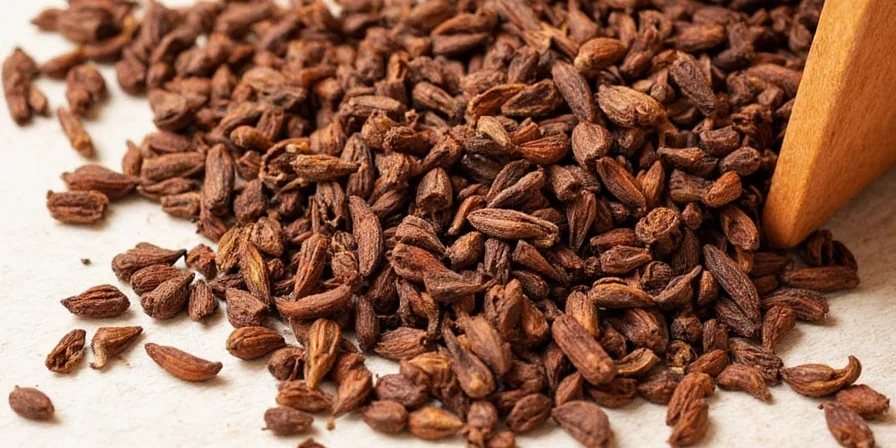

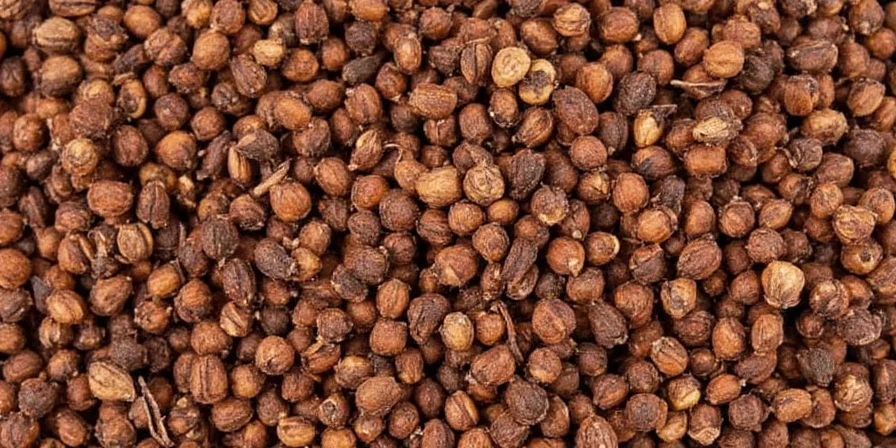









 浙公网安备
33010002000092号
浙公网安备
33010002000092号 浙B2-20120091-4
浙B2-20120091-4